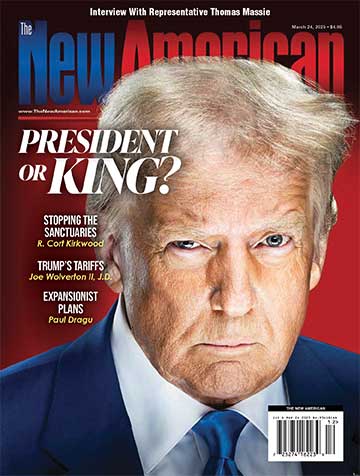
Rupert Murdoch (shown on left), the Australian-born chairman and CEO of 21st Century Fox, which owns the Fox News Channel, plans next week to ask the board of the corporation he heads to install his younger son, James, as chief executive. Murdoch also intends to have his older son, Lachlan, assume an operational role as Fox’s executive co-chairman, where he will work in collaboration with him and James.
The 21st Century Fox media empires includes cable and broadcast television networks, film production studios, and satellite companies. Murdoch plans to stay involved in Fox’s corporate business, however, and will retain his position as executive chairman of the corporation. The Los Angeles Times quoted a statement from a company associate who was not authorized to discuss Fox’s internal matters:
Rupert will do what he’s always done, dream something up and go out and talk to 400 people about it, although now he will take James or Lachlan with him. This will go on until he is 98 and decides to sit down and watch the grapes grow.
In May 2013, Murdoch, who is 84, purchased the Moraga Estate, an estate, vineyard, and winery, in the posh Bel Air neighborhood of Los Angeles.
The Murdoch family will retain solid control of both 21st Century Fox, which consists of media outlets and News Corporation, which owns publishing companies (the Wall Street Journal, Barron’s, the New York Post, HarperCollins book publishers, and others), and Australian broadcasting businesses. The family owns almost 40 percent of the voting shares in both companies, but Rupert controls more rights in the family trust than his children.
The New York Times cited the views of “people with knowledge of the family” that Murdoch’s two sons have a good relationship and should work well together to run the company in tandem, under their father’s guidance.
In a world of advancing technology where people are abandoning the print media and turning more to digital sources such as the Internet for news, younger son James, who is 42 and considered to be technology savvy, is expected to provide valuable leadership in leading Fox in that area.
“We believe James Murdoch has matured as a leader who understands the necessary changes in the digital age,” the Los Angeles Times quoted Anthony DiClemente, media analyst with Nomura Securities, in a report. “We believe shareholders will largely approve his appointment as CEO. We do not expect any major near-term changes to strategy, particularly as Rupert Murdoch will continue to oversee some of the day-to-day operating activities.”
Many people who regard Fox News, in particular, as their “conservative” news source, will wonder what effect, if any, the impending changes at 21st Century Fox’s reporting philosophy. Those who have delved into the senior Murdoch’s personal activities, as well as the Fox News Channel’s reporting, realize that the organization’s reputation as a “conservative” news source is undeserved.
Murdoch, himself, has a suspicious history for a supposed conservative. Though he was a supporter of British Conservative Party Prime Minister Margaret Thatcher in the U.K., his record in the United States has been a mixed bag. On May 8, 2006, the Financial Times reported that Murdoch would be hosting a fund-raiser for Senator Hillary Clinton’s Senate reelection campaign.
In a 2008, Wall Street Journal columnist Walt Mossberg asked Murdoch if he had “anything to do with the New York Post’s endorsement of Barack Obama in the Democratic primaries.” Murdoch replied without hesitation: “Yeah. He is a rock star. It’s fantastic. I love what he is saying about education. I don’t think he will win Florida … but he will win in Ohio and the election. I am anxious to meet him. I want to see if he will walk the walk.”
In some ways, Murdoch is a man of mystery. While he served on the board of directors of the libertarian Cato Institute — which would indicate a propensity towards less government — he is also a member of the Council on Foreign Relations, whose decades-long advocacy of a heavily interventionist U.S. foreign policy is guaranteed to encourage the massive growth of government necessary to support such a foreign policy.
Murdoch’s two sons have not taken any noteworthy public political positions, but in 2009, James made a statement critical of the BBC during the MacTaggart Memorial Lecture at the Edinburgh Internationial Televisions Festival, in which he attacked the BBC and the U.K.’s media regulator Ofcom. He called the BBC’s expansion “chilling,” adding, “In this all-media marketplace, the expansion of state-sponsored journalism is a threat to the plurality and independence of news provision, which are so important for our democracy.”
Given their close association working with their father, there is little reason to believe that Fox will change its direction after they assume their great responsibilities.
As to what Fox’s “editorial slant” is, it is definitely not traditional constitutional conservatism (sometimes called “paleoconservatism”) but the philosophy often substituted in place of it called neoconservatism.
During the 2008 election cycle, Fox News decided to exclude two candidates, the libertarian-leaning, constitutionalist Ron Paul (R-Texas) and conservative Duncan Hunter (R-Calif.), from its January 5, 2008, Republican candidates’ debate. Many individuals and organizations petitioned Fox News to reconsider its decision, but Fox refused. Consequently, the New Hampshire Republican Party officially announced it would withdraw as a Fox partner in the forum.
One indication of Fox’s position on the political spectrum is that the company publishes the Weekly Standard. Currently edited by founder William Kristol and Fred Barnes, the magazine has been described as a “redoubt of neoconservatism” and as “the neo-con bible.” Kristol is the son of the late Irving Kristol, who was dubbed “the godfather of neoconservatism.”
One of the most distinctive differences between neoconservatism and the traditional conservatism of (for example) the late senator from Ohio, Robert Taft, is in the realm of foreign policy. The traditional conservative advocated a non-interventionist foreign policy, where the United States would deter foreign aggressors by means of a strong national defense, yet not send troops around the world to intervene in other nation’s affairs. This distinction was demonstrated very plainly during the last presidential election campaign, when non-interventionist candidate Representative Ron Paul (R-Texas) was opposed by interventionist, neoconservative Republicans such as Senator John McCain (R-Ariz.)
These differences between the neoconservative and classic conservative on foreign policy were driven home last April when Fox News contributor Charles Krauthammer, speaking on Fox News’ Special Report With Bret Baier critcized Senator Rand Paul (R-Ky.) for his non-interventionist foreign policy views:
The Obama foreign policy has collapsed, and whatever name you want to put on Paul’s position, isolationist or non-interventionist, he’s without a doubt the one Republican who’d be running who is closest to Obama in his view of foreign policy.
Paul was quick to defend his position, telling Fox News’ Megyn Kelly the following night that Krauthammer was wrong:
And what I would say, the reason he’s wrong is that if you look at who’s closest to President Obama on foreign policy it would be the people who have supported his policies like the war in Libya.
And I think the neocons … in our party have been very close to President Obama on all of these issues. The only place that they have differed is in degrees.
I have been the one who opposed the war in Libya. I was the one opposed to Obama bombing in Assad when the Syria — beginning of the Syrian conflict. I was the one opposed to Obama’s arming of the Syrian rebels, of the Islamic rebels. See, the neocons have been in favor of all of these things. And they’re actually much closer to President Obama than I am.
Krauthammer is only one of a stable of Fox News neocon commentators — including Bill O’Reilly, Sean Hannity, and John Bolton — who reflect Rupert Murdoch’s views. There is no reason to believe that things at the “conservative” network will change as he turns over the reins to his sons.
Related articles:
Media Bigwigs Love the Clinton Foundation
Rupert Murdoch-owned Publisher Omits Israel From Maps Sold in Middle East.
Australia Votes to Crush Carbon Tax and Big Government
Time Warner Continues to Shrink, May Sell Off Most of Its Magazines




